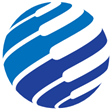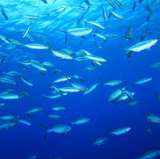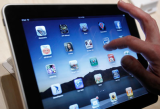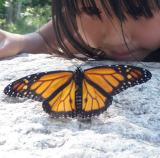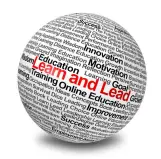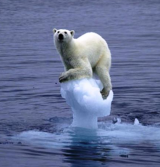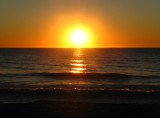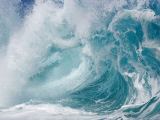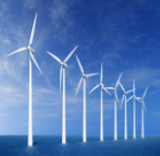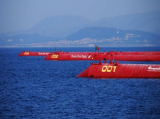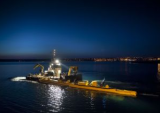.
Welcome to ‘Clean Energy from the Sea’
The Sustainable Learning Partnership welcomes teachers, school leaders, educational professionals and learners to this progressive, interdisciplinary learning and teaching resource – the first in a planned series – founded upon the principles and practices of 21st Century Learning and designed to help young learners prepare for life and active participation in a global society that is safe, just and sustainable.
The Clean Energy from the Sea project has been developed with initial support from the Crown Estate and has been piloted in Scottish secondary schools in Orkney, Thurso, Wick and Midlothian.
The project introduces pupils’ to the offshore renewables industry and the significant employment opportunities which are being created – all set within the vital context of 21st Century Learning and the progressive aims and objectives of Curriculum for Excellence.
Clean Energy from the Sea provides learning opportunities which allows them to make a connection between offshore renewables and their own studies in subjects such as geography, physics, and modern studies.
Continuous evaluation of the project is being undertaken to support the potential extension of the project to schools across the whole of Scotland – and beyond.
———————————————————————————————————————
Index to the Home Page:
- Why ‘Clean Energy from the Sea’?
- How to Use this Site
- Quick Start
- Meeting the Challenges of a Connected World
- Learning for Sustainability
- Scope
- A Quick Look at Content
- Further Learning
- Co-Production of the ‘Clean Energy from the Sea Resource’
———————————————————————————————————————
Why ‘Clean Energy from the Sea’ ?
Within the broader context of helping young people learn and apply some of the vital higher order skills they will need in order to be both effective contributors to – and beneficiaries from – an increasingly complex and interconnected world, Clean Energy from the Sea invites teachers and learners to explore three interlinked themes of major significance to sustainable living in the 21st century:
- Why the future of human society depends upon secure energy supplies to meet our essential energy demands
- Why the only safe and sustainable form of energy for the future is clean, renewable energy
- Why the oceans and seas are potentially a vast source of clean, renewable energy, presenting great technical challenges but enormous economic, social and environmental benefits
———————————————————————————————————————
How to Use this Site
The primary purpose of the site is as a resource which will better enable schools committed to 21st Century Learning to develop exciting, high-quality cross-curricular learning programmes for their students, built around topical and challenging real world problems associated with the central theme of “Clean Energy from the Sea“.
This site can be used by teachers – and, under guidance, their students – in a whole range of ways:
-
As an introduction to the foundations of 21st Century Learning – learning which is student-led, enquiry-based and interdisciplinary (cross-curricular)
-
As an introduction to the principles and practices of sustainability and to the concept of sustainability intelligence
-
As an introduction to the concepts of global competency
-
As an introduction to the underpinning for 21st Century Learning provided by Earth System science
-
As an important resource for developing Learning for Sustainability as a core part of the curriculum in schools
-
As a primer for non-specialists (and a refresher course for specialist teachers) in related essential topics such as energy, climate change and renewables
-
As an introductory guide to marine renewables such as offshore wind, wave and tidal power
-
As a basis for personal learning and as a foundation for Continuing Professional Development linked to Learning for Sustainability and “learning through sustainability”
-
As a source of reference and guide to further learning
-
As a source of Exemplars and Case Studies for interdisciplinary learning studies in schools, under the auspices of the Curriculum for Excellent or equivalent
-
As a guide to schools to building interdisciplinary learning into their curriculum
-
As a comprehensive teacher guide to planning, running and assessing student-led, enquiry based, interdisciplinary studies
-
As a forum for sharing ideas and experiences relating to interdisciplinary learning, learning for sustainability and marine renewable energy topics
A full guide to the contents of the site are shown below.
———————————————————————————————————————
Quick Start
If you are a frequent and repeat user of Clean Energy from the Sea, you may find it most convenient to go directly to the Quick Start page and menu. From there you can navigate quickly and easily to the appropriate sections of the resource.
Key sections for returning users are likely to include the Teacher Guide and the Learning Library.
New users, please read on ..
———————————————————————————————————————
Meeting the Challenges of a Connected World
Meeting the challenges of an increasingly inter-connected world calls for a generation of global citizens, able to engage collaboratively and competently in finding fair and effective solutions to complex global problems – social, economic and environmental. Specifically, the challenges of global sustainability and the future of the planet will increasingly shape the working futures and current educational needs of today’s young learners.
Acquiring the essential knowledge and skills required to find safe, just and sustainable solutions to issues such as global energy demand and supply, climate change, biodiversity loss, land-use change and water shortage – needs to become the everyday experience of every learner, in every school, in every community.
Clean Energy from the Sea – designed around the rich theme of Marine and Offshore Renewable Energy Sources – is the first in a series of learning and teaching units which make up an innovative resource for schools we call Learning for Sustainability. Each topic in the series provide rich opportunities for young people to develop higher order cognitive skills, especially systems thinking skills, of deep relevance to the 21st century.
———————————————————————————————————————
Learning For Sustainability
The Sustainable Learning Partnership are the authors of Learning For Sustainability – a new set of resources for schools designed to help young learners develop the knowledge, skills, attitudes, values and practices needed to make the successful transition to a just and equitable, low carbon future for all. Our vision is of a generation of young leaders, showing the way to build sustainable, healthy and equitable communities, powered by clean and viable forms of renewable energy.
Whilst sustainability is a topic of the utmost importance in its own right, Learning For Sustainability embraces a pedagogical approach – built upon a set of foundations that can be said to define 21st Century Learning, and with a specific focus on the acquisition and application of higher order skills – that has vital relevance to many other aspects of current and future life on a “hot, flat and crowded” planet. We call this approach Learning Through Sustainability.
We believe most schools will find the resource works best in a context in which activities associated with the Clean Energy from the Sea resource are primarily learner-led and where the role of the teacher is to advise, support and challenge.
Each topical unit is a carefully constructed blend of content, ideas, sources, tools, perspectives, exemplars and challenges. Each unit is designed to connect a student’s local learning experiences systemically to the wider world (including, specifically, the world of work) and to offer stimulating opportunities for the performance of understanding. All units are designed to enable young learners engage with and explore a globally significant topic of profound environmental, social and economic relevance, critically, in depth, by richly varied means, and from the perspective of multiple disciplines across the whole of the curriculum.
———————————————————————————————————————
Scope
Clean Energy from the Sea has been developed in the first instance to encourage and support enquiry-based, interdisciplinary learning strategies within Scottish Schools delivering the Curriculum for Excellence.
Schools adopting the unit to build into the curriculum are offered a resource that is designed to be engaging, motivating, demanding and challenging. The resource is non-prescriptive – written to allow for adaptation at different levels within the overall framework provided by the Curriculum for Excellence and to be compatible with a wide variety of teaching styles and learning outcomes.
The foundations of 21st Century Learning upon which the learning unit is based, however, are universal and the resource can be freely adapted by any school with a global perspective on education and whose curriculum has space for an interdisciplinary, enquiry-based approach to learning, to meet their specific teaching and learning needs.
———————————————————————————————————————
A Quick Look at Content
The content of Clean Energy from the Sea is conveniently organised under five main headings. You can explore the content of each section by visiting the Quick Start section or clicking on the appropriate link below:
1. Getting to Know “Clean Energy from the Sea”
2. Exploring the Essential Knowledge Base
3. Planning Learning Activities for Students
4. Extending Your Learning
5. Becoming Part of a Learning Community
———————————————————————————————————————
Further Learning
Visit the Library to view a guide to further learning sources – including to Massive Open Online Courses such as Coursera and Futurelearn – which teachers and senior students may find useful if they wish to advance their understanding of key topics covered by the Learning for Sustainability Resources.
MOOC stands for a Massive Open Online Course.
- It is an online course aimed at large-scale participation and open (free) access via the internet.
- They are similar to university courses, but do not tend to offer academic credit.
- A number of web-based platforms (initiatives) supported by top universities and colleges offer MOOCs in a wide range of subjects.
———————————————————————————————————————
Co-Production of the ‘Clean Energy from the Sea’ Resource
The materials contained in the Clean Energy from the Sea Resource are not considered to be fixed or prescriptive. The intention is that the materials and the ways in which they might best support pupils’ learning should be developed collaboratively to take account of teachers and pupils’ experience.
We invite participating schools to provide feedback on their use of materials and allow us to include the work of schools in the Learning Library section so that experiences can be shared across the whole community. In this way future versions of the resource, published for general use will take the form of a co-production between the Sustainable Learning Partnership and a wider partnership of schools.
———————————————————————————————————————


